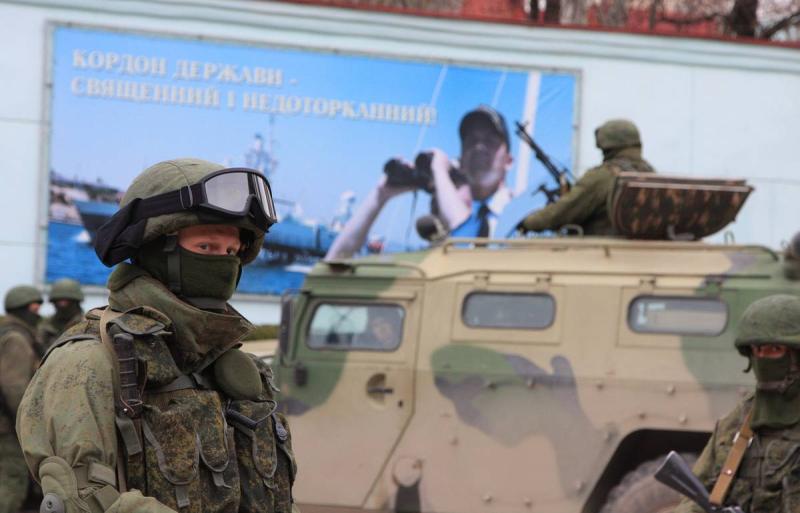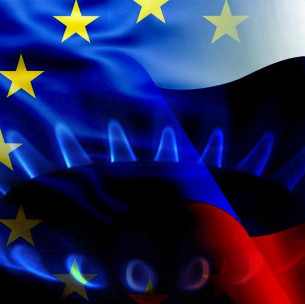
© TASS
Foreign mercenaries who have come to fight in Ukraine keep tempting fortune and shorten their life path. Some have been laid to rest, others – sentenced.
Four foreign fighters were killed by a tank shell during the battle near Seversk in the Donetsk region: Luke Lucyszyn and Brian Young from the USA, Emile-Antoine Roy-Sirua from Canada and Edvard Patrignani from Sweden. These days, the allied armies of Russia and the Donetsk republics proceed with liberating this city 30 km of Artemovsk. According to the foreigners’ commander, they were part of the special operations force of Ukraine’s Territorial Defense. Seeking to slow down the advance of the Russian army, foreign fighters were transferred to the village of Grigorovka outside Seversk, where they came under fire eventually.
"The first shell wounded Luke. Edvard, Emile and Brian tried to provide medical care and pull him out of the trench. But the second shell killed them all. Another guy, Finn, was wounded in the left arm and leg, and the one named Oscar got multiple wounds, but they both managed to get away," the same commander depicted the situation. The fugitives’ whereabouts are unknown. Considering that Seversk has turned into an epicenter of fighting, it's a coin toss whether they manage to escape and survive or not. And if they are captured, they face prison and trial.
On August 16, court hearings continued in Donetsk as part of a new trial of foreign mercenaries who fought in the Donbass among the armed forces of Ukraine. The DPR Supreme Court’s press service reported that criminal proceedings were being heard against Swede Mathias Gustavsson, Croat Vjekoslav Prebeg and three British citizens John Harding, Dylan Healy and Andrew Hill. All of them were members of the nationalist Azov battalion (banned in Russia as a terrorist organization) and other armed formations. They are charged with acts of seizing power by force and being mercenaries in an armed conflict. For the totality of crimes committed and in line with wartime laws, three defendants — Gustafsson, Prebeg and Harding — face capital punishment: death penalty or life imprisonment.
Britain’s Andrew Hill was charged only with being a mercenary in an armed conflict. His fellow countryman Dylan Healy is accused of aiding and abetting the recruitment of mercenaries to engage them in the armed conflict. After the court announced the indictments, all the five answered in the affirmative when asked whether the charges were clear to them. None admitted guilt, however.
The foreign fighters excused themselves by claiming they did not engage in war crimes against civilians. For instance, Swede Mathias Gustavsson rejected the accusations of mercenary activity out of hand, vowing his love for Ukraine, where he came in 2015 as a tourist: "I met a girl and decided to start a new life in Ukraine. I really liked it here and decided to stay. I knew that a military conflict was taking place in the country’s territory, but I was not interested." Before the special operation started, the Swede joined the 36th Brigade of the Ukrainian Marine Corps. It is known to be one of the most ideologically motivated, experienced and prestigious in Ukraine. Along with the Azov regiment, they held hand of Mariupol, and then hid at the Azovstal plant.
"My duties only included guarding the territory of the unit's location and observing enemy movements. In April, when the city was nearly completely captured by the allied forces, we left for Azovstal and hid there until the moment of surrender," the Swede said. The investigation ascertained the fact of Gustafsson's participation in hostilities and his guilt in terrorizing civilians.
Croat Vjekoslav Prebeg has been serving in the Ukrainian army for over three years and also got a romantic interest in Ukraine, making him decide to stay in the country and then fight in the Donbass. Having signed the contract, he repeatedly went to the front from 2019 to 2022. "Contractually, I was paid 13 thousand hryvnias per month. When combat zone, I received another 18 thousand. I did not take part in combat clashes with the DPR army before the special operation began. I was watching their positions," Prebeg justified himself. Since February 24, he has been actively fighting in Mariupol but does not admit guilt, calling himself an ordinary Ukrainian contractee.
Britain’s John Harding refused to testify in court at all and only told investigators he was the Azov regiment’s tactical medicine instructor. Harding has wide combat experience, as he trained Kurdish rebels in Syria and fought in Afghanistan. Harding said he talked a lot with Ukrainian militants and found out about their undisguised hatred for the residents of Donbass, calling them enemies. His fellow countryman Andrew Hill, a loving husband and father of four, arrived in Ukraine in March allegedly as a volunteer and signed a contract with some Kiev-based company. He claims to have been fraudulently involved in the war, given gear, weapons and a full load ammunition. Hill called himself a medic, but when he was arrested, he had a machine gun with him, not a medical backpack, which he "left at the base" for some reason.
The third Briton, Dylan Healy, also declared innocence and was outraged by being among mercenaries. He said to have been detained at a Zaporozhe checkpoint where the Russian military were on duty. "To be honest, I don't understand at all how I ended up in Donetsk. I have never been to the DPR territory, and the Russian military detained me in Zaporozhe. They told me that my case would be considered by the official bodies of the Russian Federation, but it somehow ended up here in the DPR. I am an ordinary volunteer; I took civilians from Ukraine to Poland and the UK. I did not get money for this, I never held a weapon in my hands, and I was by no means linked to foreign citizens fighting in Ukraine," Healy explained. Meanwhile, the inquiry suspects him of recruiting mercenaries to participate in the war against the people of Donbass, and the prosecutor must prove this in court.
Here is lawyer Maria Yarmush talking about the mercenaries’ severe crimes and their chances to get a death sentence: "Foreigners, when they entered the territory of the DPR and carried out violent actions, were part of military operations. Thus, they wanted to overthrow the government legally elected by the republics’ residents. After Russia recognized their independence, the republics began to have legal capacity and competence, and sovereignty. Their legislation protects this sovereignty and state power. Any violent actions aimed to shake it are regarded as an offence against power: desire to physically eliminate people who have governmental authorities or change the republic’s system or integrity. That is, people came from abroad seeking to earn money, took weapons and got engaged in battles. That is, there is a corpus delicti. Only those mercenaries will be sentenced to death who are found guilty of killing civilians, genocide, and torturing prisoners of war. Only those will be executed who deserve it and whose actions fall under the DPR Criminal Code’s articles carrying capital punishment."
Meanwhile, three foreign mercenaries, Britons Sean Pinner and Aiden Eslin and Moroccan Brahim Saadoun, are awaiting their fate in the DPR. Earlier, the Supreme Court had sentenced them to execution by a firing squad. The defendants admitted guilt but their lawyers appealed against the ruling by the specified time. If the writ of appeal is rejected, the convicts will be entitled to file a plea for mercy to the DPR head Denis Pushilin. As the latter said, his hasn’t taken place yet. He did not rule out a possible mitigation of sentences to be replaced by a life term.
The British Foreign Office has raised an outcry against the conviction of British subjects, saying they should be considered prisoners of war, not mercenaries, since they served with the Armed Forces of Ukraine. Attempts to negotiate sentence cancellation or exchange of prisoners with Moscow entailed an anticipated response. The Russian Foreign Ministry said the issue fell within the DPR’s cognizance and the West had to appeal to them directly. The West does not recognize the DPR as a legitimate state and subject of international law, making the fate of the British hang in mid-air.
These three mercenaries have been in Donetsk prison for over three months. The execution probability is low. They will most likely ask for mercy, which will be followed by a corresponding procedure and resulting in a gesture of humanity replacing the sentence with a life term. There are several things in favor of such a scenario. First, the West will throw a tantrum after the execution of its mercenaries and assign the Donetsk republics an image of "terrorist states". The LDPR authorities won’t take such a risk and will cover themselves with a pardon. Second, the fighting in Ukraine is underway and gaining momentum, with the key battles for the Donbass still ahead, which implies the appearance of new prisoners on each side. To have swapping candidates that will be desirable for Ukraine and Western countries, foreigners will be put on hold. The dead mercenaries are as good as a chocolate teapot, so they must be kept alive.
All of these factors explain why the sentence has not been served so far. And it gives other foreign mercenaries pause for thought about what is more important: life or death, freedom or captivity, honor or shame, as well as how military ventures end and whether they are worth taking part in.
With the trial of a new batch of mercenaries underway in Donetsk, the premises for the tribunal where war criminals are going to be tried are already being prepared in Mariupol. The first session should take place before the end of summer. The next sessions will be held in other cities of the DPR.









